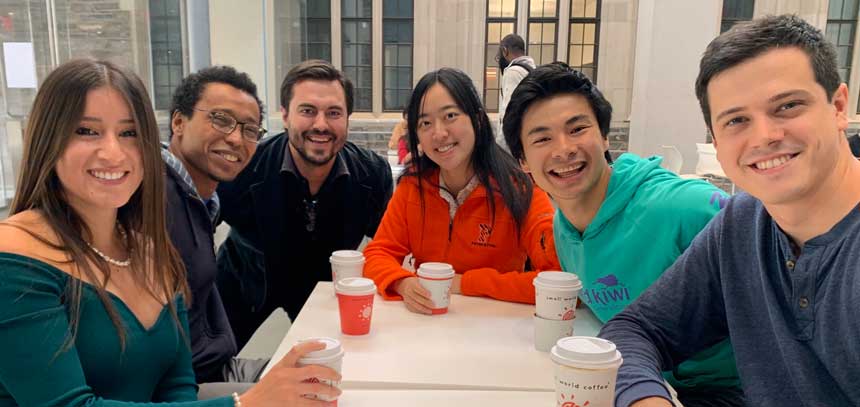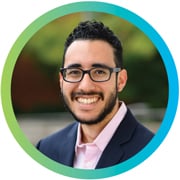2021 Charting a Career Path in Global Affairs
THIS GUIDE IS NO LONGER ACTIVE. For the current FP Guide, click here.
PRINCETON UNIVERSITY, PRINCETON SCHOOL OF PUBLIC AND INTERNATIONAL AFFAIRS
Diversity, Equity, and Inclusion are Central to Public Service
In a world where diversity, equity, and inclusion have moved to the forefront of the global conversation, the Princeton School of Public and International Affairs (SPIA) is augmenting its curriculum to give students the tools and training to lead on these issues with confidence.
The school added a mandatory course on race, power, and inequality this year—its second such addition—in an effort to better equip graduates for a policy landscape that is evolving. It will be the first course that new students take when they arrive at the school.
“This allows students to develop the necessary context to think broadly about race, equity, and inclusion,” says Director of Graduate Admissions Steven F. Petric. “The goal is to provide a common baseline of understanding. We felt it was important to kick off the program with that baseline.”
SPIA offers three degrees: a PhD in Public Affairs (five years), a Master in Public Affairs (two years) and a mid-career Master in Public Policy (one year). Both master’s programs allow students to choose among four fields of concentration and three optional certificate programs.

“SPIA is distinguished by its commitment to public service. Service is central to everything we do.” –Steven F. Petric, Director of Graduate Admissions, Princeton School of Public and International Affairs, Princeton University
Furthermore, SPIA offers a unique benefit: the school pays the cost of tuition and health insurance for every admitted student. A need-based stipend to cover living expenses also is available. This practice helps make the school financially accessible to students from all communities. “We work very hard to provide financial packages that ensure students can focus on their studies while at SPIA and on their public service careers after graduation,” Petric says.
SPIA is distinguished by its commitment to public service, Petric adds. “Service is central to everything we do.”
Because more than 80 percent of graduates choose public-sector jobs, they very likely will encounter structural inequities accompanying issues such as immigration, housing, and health care. Last year, SPIA added a course requirement on diversity, equity, and inclusion that allows students to choose from a menu of options, including classes on “Citizenship, Borders, and In/Exclusion,” “Racial Democracy in America,” and “International Migration: Challenges and Policy Responses.” Petric says the school will continue to think broadly about how to address these issues across its curriculum.
As he put it, “We are a community in conversation.”
Students Help Shape Education and Curriculum on Equity and Inclusion
As SPIA began to increase its course offerings in diversity, equity, and inclusion (DEI), students and alumni were important participants in that process.
>>>Students Guillermo Herrera Nimmagadda and Yvette Ramirez serve alongside faculty and administrators on a committee that recommends ways to make the school more inclusive. >>>“The changes adopted by the school are an important step toward equipping students with the skills and knowledge to fully address inequities in and beyond the United States,” says Nimmagadda, 26, of Miami.
>>>“The changes adopted by the school are an important step toward equipping students with the skills and knowledge to fully address inequities in and beyond the United States,” says Nimmagadda, 26, of Miami.
>>>Ramirez, 31, of San Francisco, agreed that the conversation must go global. “Students need support to understand DEI in other contexts and to unpack global inequities. Students with historically marginalized identities, like students of color, are often the first to identify gaps and injustices.”
Contact
https://spia.princeton.edu
[email protected]
609-258-4836![]()
Contents
- 2021 Charting a Career Path in Global Affairs
- George Mason University, Schar School of Policy and Government
- Yale University, Jackson Institute for Global Affairs
- Johns Hopkins University, School of Advanced International Studies
- Princeton University, Princeton School of Public and International Affairs
- Seton Hall University, School of Diplomacy and International Relations
- University of Notre Dame, Keough School of Global Affairs
- Indiana University, Hamilton Lugar School of Global and International Studies
- Texas A&M University, The Bush School of Government and Public Service
- Carnegie Mellon University, Institute for Politics and Strategy



